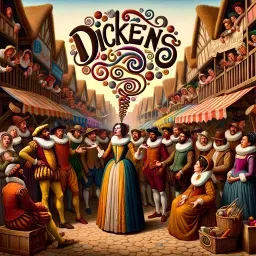”How far that little candle throws his beams!
So shines a good deed in a naughty world“

0
0
0
0
- Meaning
- This phrase speaks to the concept of the power and influence of even small acts of kindness in a world that can often seem overwhelming and filled with challenges. The imagery of a little candle throwing its beams signifies how a small, positive action can illuminate and make a difference in an otherwise dark or "naughty" world. It emphasizes the importance of good deeds, no matter how small, in bringing light or positivity to a wider environment.
- Allegory
- The small glowing candle symbolizes the initial small act of kindness, while its beams of light represent the spreading influence of this deed. The vast dark landscape emphasizes the world’s challenges or negativity. The gentle figure engaging in a thoughtful act demonstrates the application of kindness. The night sky filled with distant stars further symbolizes numerous small good deeds carried out by individuals globally, each contributing to dispelling darkness and fostering hope. The whole scene should inspire viewers to appreciate the significant impact of positivity and moral actions.
- Applicability
- The teaching of this phrase can easily be applied to personal life by recognizing the impact of one’s actions, however minor they may seem. Acts of kindness, compassion, and integrity can contribute to a better world. For example, holding the door for someone, volunteering, or even offering kind words can significantly influence others and promote a more positive, engaging community atmosphere.
- Impact
- This phrase has had a significant impact on literature and culture, highlighting the value of kindness in various contexts. It is often cited to emphasize the lingering positive influence of small good deeds. Shakespeare's reflections on human nature and morality continue to inspire discussions on ethics and human behavior. Such phrases remind individuals and societies that positive actions, even small ones, can contribute to broader societal well-being.
- Historical Context
- "The Merchant of Venice" was written between 1596 and 1599. This period is part of the late 16th century, during the Elizabethan era in England. The play itself explores themes of mercy, justice, revenge, and the complexity of human relationships. Shakespeare’s works during this time often reflect the social norms and philosophical contemplations of his era.
- Criticisms
- There are not significant criticisms or controversies directly related to this phrase. However, some might argue that focusing on small good deeds can sometimes overlook the need for more substantial change in the face of systemic issues. Yet, this does not diminish the inherent value of individual acts of kindness.
- Variations
- Variations of this phrase often revolve around the metaphor of light representing goodness or moral integrity. Different cultures might have their interpretations focusing on the importance of virtue and the wide-reaching effects of positive actions. For instance, in many Eastern philosophies, the concept of karma echoes a similar sentiment—the idea that actions have far-reaching consequences.
-

The empty vessel makes the loudest sound.
-

By the pricking of my thumbs, something wicked this way comes.
-

Rich gifts wax poor when givers prove unkind.
-

The evil that men do lives after them; the good is oft interred with their bones.
-

One touch of nature makes the whole world kin.
-

I like this place and could willingly waste my time in it.
-

I cannot tell what the dickens his name is.
-

There are more things in heaven and earth, Horatio, than are dreamt of in your philosophy.
-

Men at some time are masters of their fates.
-

They do not love that do not show their love.
No Comments